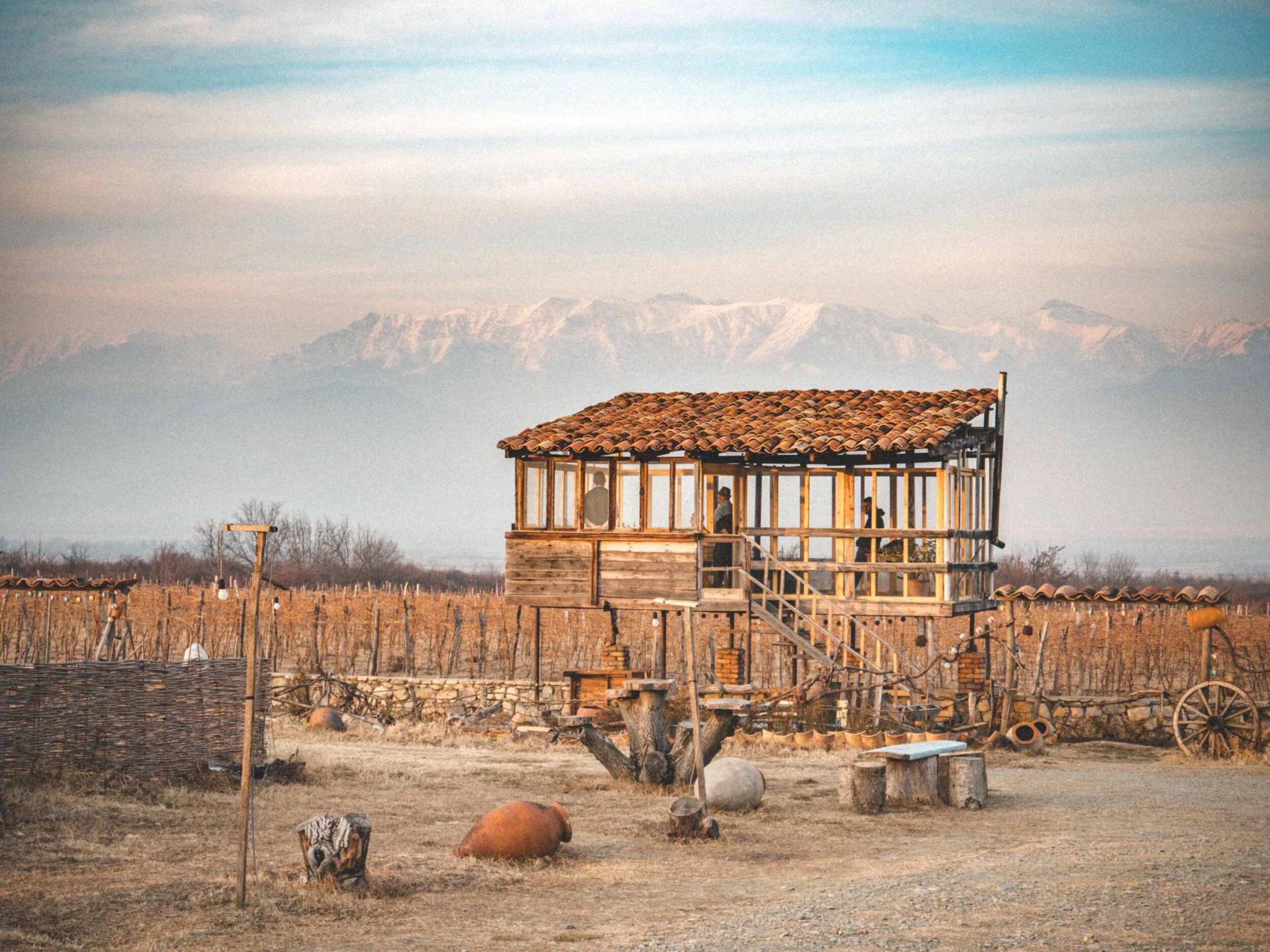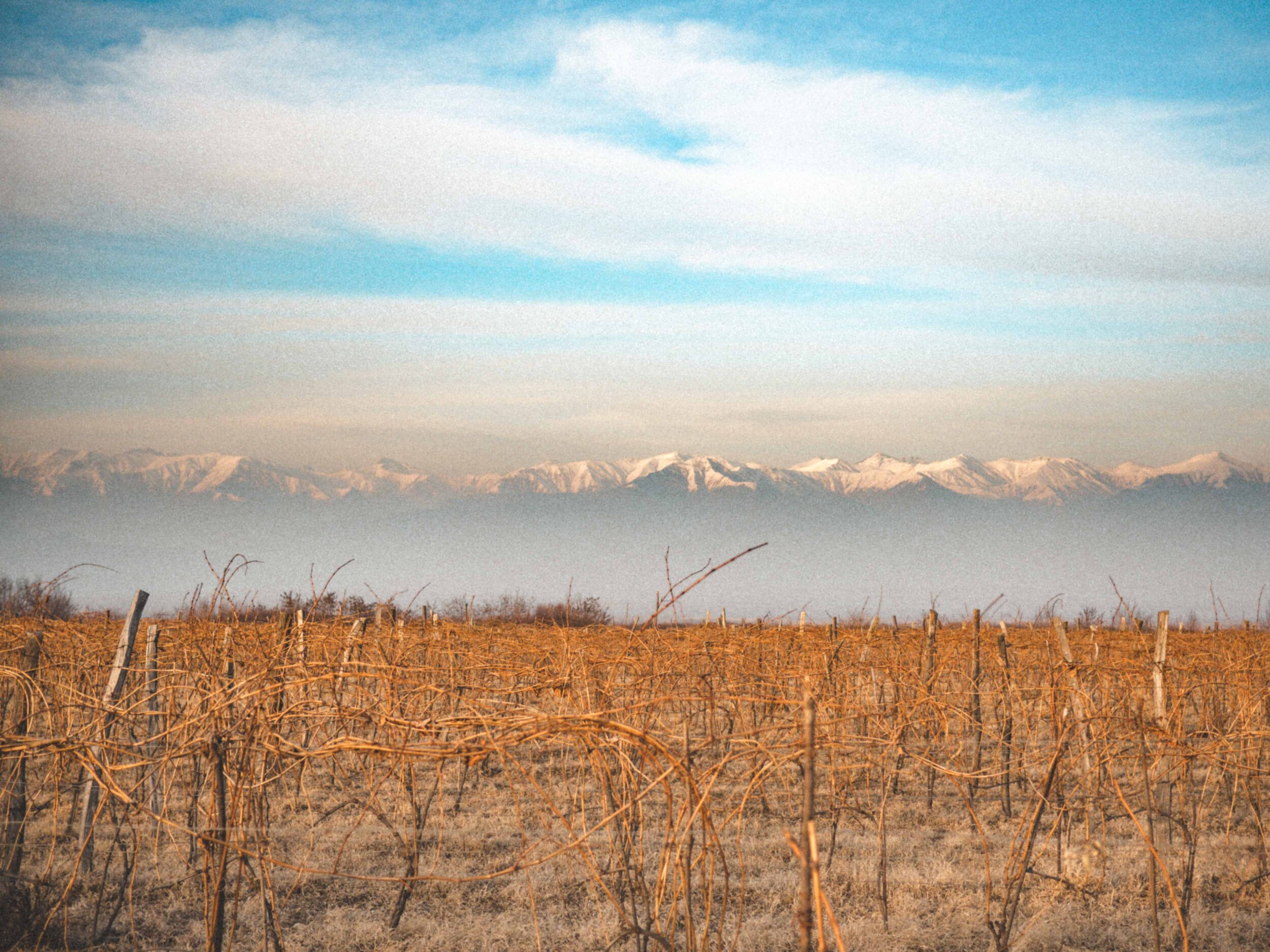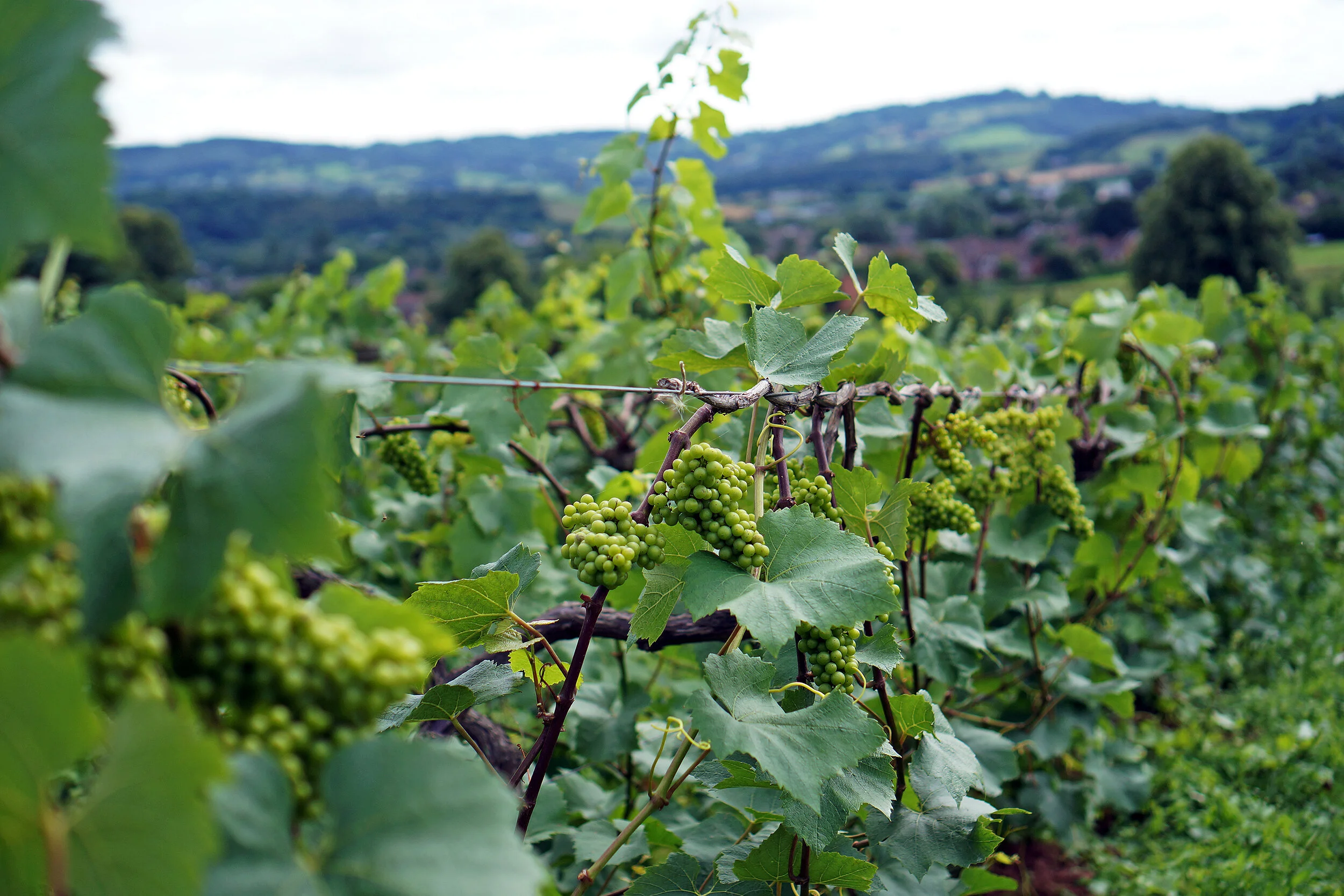Amber Wine and Chacha — Stumbling Upon Giorgi Aladashvili’s Kakheti Playground
“Yes, please still come today! I just was calling to tell you how to get here. I will be underground in the marani for the next few hours, so if you get lost you’ll have to figure it out.”
I scribbled down the directions rattled off to me by Giorgi Aladashvili, the winemaker in charge of Ruisipiri Biodynamic Vineyards, only to find them incomprehensible when I hung up: “You’ll see some qvevri after Ruispiri but these aren’t mine. You’ll know when you’re here.”
Photography by Quentin Boehm
Finding the qvevri wouldn’t be a problem since the large, egg-shaped earthenware pots—traditionally used to ferment and age Georgian wine—are difficult to miss. Usually, they’re found buried underground, set into the floors of marani—the Georgian term for wine cellars—but in this case they acted as markers that we were heading in the right direction.
Leaving Tbilisi a few days before we made the decision to travel through the Kakheti region, famous the world over for its amber wine. Karvisperi ghvino or amber wine (the preferred term used in Georgia, over than the more commonly-used term ‘orange wine’) gets its brilliant colour from the skins and stems of white grape varieties that are left in contact with the grapes inside the qvevri from several days to several months. Not only does it change the colour of the wine but it increases the levels of tannin, producing wines with a more robust flavour and texture than if the grapes were simply pressed and the juice fermented by itself.
This process of maceration (or skin-contact) is typically used in the production of red wines but has been used in the winemaking practices of Georgian winemakers for thousands of years, and later by those in Slovenia, Italy and neighbouring countries. Now the production of skin-contact white wine is common practice all around the wine-producing world—especially within the natural wine scene—not bound to any particular country.
Passing through Kakheti meant taking the longer route, crossing the Lesser Caucasus range. Dancing up the arduous climb to Gombori Pass, we threw our bikes to the side and gulped in the view while we caught our breath. At the same time, a man in a white car travelling in the opposite direction stopped, exited his vehicle and ambled over to the guardrail to get some air.
On our bicycle journey from France to Asia, we looked first to locals to help us discover the culture. A few minutes spent chatting with the man by the guard rail quickly yielded fruit. Without skipping a beat he sang the praises of Ruispiri Biodynamic Vineyard, located a dozen miles outside the region’s main city of Telavi. “If you only taste one amber wine, this should be it,” he said, as he wrote down the phone number of the owner, Giorgi.
Cycling towards the vineyard, there were a few qvevri lying around as promised, though it wasn’t clear in which direction we were meant to continue. We took a chance to head west. Soon the buildings fell away and a long wide plain that stretched all the way to the base of the Caucasus Mountains unfurled beside us.
Giorgi appeared within seconds of our arrival. “Welcome, welcome! Okay guys, you’re here!” A big grin and handshakes all around. “So you want to taste some wine, and then maybe tonight, you can camp here with your bikes. That’s no problem, that’s good. It’s like your home here.”
A posse was assembled to guide us through the wine tasting. One was Giorgi’s right-hand man Misha, another was a young French intern come to learn the tricks of the trade, and two others, tagging along to observe the tasting.
At the edge of the farm, butted up against a parcel of vines stood a lone wooden treehouse. Giorgi excused himself, promising to catch up with us later. “Are you hungry?” he called over his shoulder. He didn’t wait for a reply as he strode off towards another building.
Though it was still the dead of winter, the sun had been shining all day; the tall wrap-around windows caught the light and warmed the inside of the tasting room. We sat down and began to rattled off our questions about biodynamic Georgian wine.
In answering us, Misha progressively unveiled the remarkable story of Giorgi Aladashvili. “Giorgi is always moving, always thinking,” Misha began. “Before, in the 90s, no one had anything left, just dirt. Many people left Georgia. Giorgi too. He left for Switzerland, where he learned everything he could about biodynamic wine. Many of the traditional methods our ancestors used to make wine are found in the methods for making biodynamic wine.”
““We looked out across the plain at the towering Caucasus Mountains; rising above the winter afternoon mist, their white peaks seemed to hold up the sky.””
Misha explained that choosing the right days to plant, water and harvest, and using horses to plow and sheep to prune are not new traditions, but that they fell out of practice during the time of the Soviet Union. “Giorgi is making Georgian wine very famous.” His admiration for Giorgi was clear from his way of speaking—a deep-seated respect and faith in the man.
As he spoke, a box of new glasses was brought in, and the tasting began. “This wine is from the white Rkatsiteli grape, the most common in the region. This wine is fermented just as our grandfathers fermented their wine: in a qvevri,” recounted Misha, as he uncorked the bottle.
The light orange wine was spicy, tasting of saffron, nougat, and caramelised onions. It hung softly on the tongue and lingered in the mouth after swallowing. We looked out across the plain at the towering Caucasus Mountains; rising above the winter afternoon mist, their white peaks seemed to hold up the sky. In the forefront, stood the vineyard’s original parcel, a half-hectare rectangle filled with rows of vines.
We moved on to another amber wine, made from the Kisi grape variety. Misha poured it into the glasses, and we recognised its postcard colour straight away: vibrant orange, exactly what we expected when we imagined Georgian amber wines. Fruity and fresh, it was difficult to comprehend how a wine that came from this cold place could taste like Mediterranean citrus fruit. Misha had the answer, “This wine has a lot of skin-contact with the grapes—several months,” he says. “At the beginning of the fermentation in the qvevri, we have to check it every few hours. We stir it often. Giorgi sleeps next to it, so he can take care of it even during the night.”
I’m ashamed to admit, the third wine passed almost unnoticed, not because it was forgettable, but because a woman entered the room bearing a tray overflowing with food. Spread before us were plates of cornbread, roasted potatoes, sweet pickled garlic and cherry tomatoes, goat cheese.
Georgian hospitality is famous, and it is of a particularly boozy variety. To wash down our food, we moved to glasses of chacha, the Georgian version of eau de vie. Sometimes called the “vodka of wine,” this spirit is decidedly stronger than wine and distilled from the pomace or solid remains of grapes after they’ve been pressed.
The origin of this bottle may have been from the vineyard, or from someone’s homemade supply; we’ll never know. With our short glasses of chacha in hand, the atmosphere shifted to a social hour full of multilingual story swapping. We were regaled with tales of wolves, snowstorms and the struggle for a prosperous life after the collapse of the Soviet Union. To hear these retellings while seated in such a comfortable environment was surreal; the present was cosy and had a festive feel, yet the stories were still fresh in memory and tinged with pain.
The magical thing about chacha is, though powerful, it doesn’t burn out your tastebuds. We moved to wrap up the tasting with the only red wine on the table. Another qvevri wine, made from red Saperavi grape, it was warm and robust. It tasted like the first plums of summer when the flesh is still firm and not too sweet.
Later we wandered in the twilight around the farm, admiring the winter garden and hoping that the brisk air might help us sober up. Giorgi came striding over and ushered us into another small building. “You will sleep here tonight, there is a wood stove,” he said as he gestured towards the fire. “It’s more comfortable than your tent, yes? I am taking the workers home, I’ll come back, and we will talk.”
When he returned, a bottle of Rkatsiteli in his hands, we lined up our glasses for a drink. “Santé, gaumarjos!” [“cheers!” in Georgian] and we learned the details of Giorgi’s story that had been peeking out all afternoon. Stemming from a deep love for his homeland, Giorgi had returned from his work in Switzerland with only enough money in his pocket to cultivate his family’s half-hectare plot, plus 2 hectares of rented land. With a horse-drawn plough, he turned the earth between the vines.
The financial investments needed to get started meant in the beginning breaking even was the goal, and turning a profit was a bonus. “Do you know how much a real clay qvevri costs,” he asked, “$1000 [around £790]. Everyone today, they want to use plastic barrels, but this is not our tradition. Here, I only do things according to our tradition.”
Following these traditions must be working, because this year’s production is the largest yet, 11,000 bottles, and it’s already sold out. We questioned Giorgi a little bit more about his vision: how would making Ruispiri Biodynamic Vineyard success in Switzerland help locals?
“What I am trying to build, yes, it is a business and it is meant to advertise our wine to foreigners. But also, I want to remind the people here of our traditions. I want to show them the value we have, just being ourselves.” Something about this sentence struck a chord and silence fell. Isn’t that what we all secretly want: to be appreciated just by being ourselves? And isn’t it what the community here deserves, after the decades of strife?
Giorgi left us to digest his words as he bid us goodnight, and in the morning waved us off. The memory of his wide grin and easy hospitality kept us warm till nightfall, and then, temperatures plummeting while we set up our tent, it was our flask that he filled with chacha that warmed our bones till morning.

































